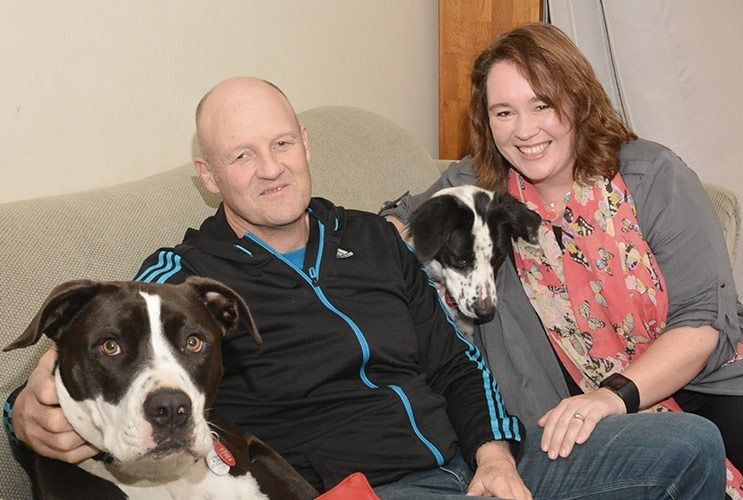Sepsis Awareness and Survival Story of Andrew Strawbridge
Andrew Strawbridge's Story
In 2015, Chiefs assistant coach, Andrew Strawbridge came as close to death as you can get whilst on tour to Samoa.
Bacteria had entered Andrew’s body releasing toxins into his blood – it started from a skin infection around his eye but led to sepsis – his vital organs were shutting down due to infection. He spent several days in intensive care in Samoa and in Waikato Hospital, and was on antibiotics for weeks.
Andrew is a sepsis survivor. He is also very pragmatic and takes life one day at a time. His recovery has been very slow and steady.
He lost the sight in one eye and still suffers from fatigue two years on. He was fortunate to have been so fit before falling ill, otherwise medical staff believe Andrew would not be alive.
“We conducted a study between 2007-2012 at Waikato Hospital that showed we dealt with around 1,600 people with sepsis during that time, caused by various infections. About 20% of hospital admissions involved time in Intensive Care. One in four patients died in hospital, which is much worse than heart disease or stroke. We found it is a disease of all ages in the Waikato. 30% of our patients were under 65 years old.”
“The importance of sepsis as a cause of ill-health and death amongst Māori merits special attention. Māori in the Waikato are three times more likely than non-Maori to present to hospital with sepsis, and at a younger age.”
New Zealand is the ideal country to study the epidemiology of infection” says Dr Huggan.
“We’re seeing more sepsis each year as the population ages with chronic health problems. We’re doing what we can to understand the problem but people need to know that sepsis isn’t a mild illness, and it’s not normal to be at home with a high fever, body shakes (rigors), confusion, severe weakness, heavy breathing or symptoms of infection that are rapidly getting worse. Sepsis is treated with antibiotics and fluid, and the sooner the better” Dr Huggan summarises.

